|
|
 أستراليا ساعدت على إستعمار السودان أستراليا ساعدت على إستعمار السودان
|
بالمناسبة تاريخ السودان ده عجيب و مليان كضب و أسرار
الليلة إكتشفت إنو حتى أستراليا بلد مساجين الإنجليز دي كان عندها جيش في السودان لمحاربة المهدي
الكلام ده ما درسونا ليهو لي شنو
شوفو براكم
Probably the only Australian killed in action in Sudan 1855 and therefore possibly the first Australian casualty of war.
Robert De Courcy COVENY, (1842-1883), was the son of Sydney merchant and philanthropist, Robert Coveny;
His mother was a member of an Irish military family.
He was born in Sydney on 4 November 1842, and educated at the seminary of St Mary's Oscott, near Birmingham, England.
In September 1862 he bought a commission in the 42nd Regiment and became a brevet Lieutenant Colonel in May 1875.
He served during the Sudan War and was killed in action at Kirbekan on 10 February 1883.
His 'singularly dexterous' sketches of camp life and the Nile were reproduced in the London Pictorial World.
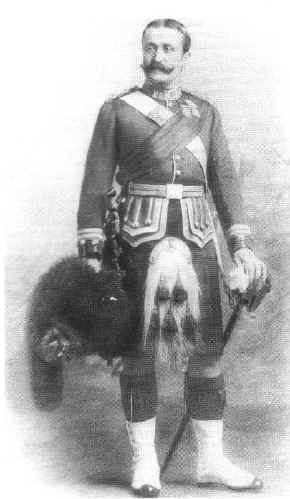
The Sudan - 1885
In February 1885, as implementation of the Jervois-Scratchley recommendations in New South Wales was nearly completed, news was received of the death of General Charles Gordon at Khartoum during the Dervish revolt in the eastern Sudan.
The following day New South Wales offered two batteries of its regular artillery, a battalion of infantry and a small ambulance detachment to serve with the British forces in the Sudan. Within three weeks, the force of 768 all ranks was enrolled, equipped, and dispatched in two ships. (Only one artillery battery was dispatched.)
Within a month of embarkation the contingent saw action at Tamai. By May 1885, the campaign had been reduced to a series of skirmishes and the troops returned to Sydney by mid-June. Three soldiers were wounded and two died of illness during the campaign, while three later died of illness at Colombo during the voyage back to Australia.
Lord Wolseley said that 'the result was so satisfactory that I trust the noble and patriotic example set by New South Wales may, should occasion arise, be followed by other colonies', an opportunity which came fourteen years later. The Sudan Contingent was the first army contingent to be raised and dispatched by an Australian colony. In 1907, the award of the honorary distinction ' Suakin 1885 ' was made to the New South Wales infantry regiments of the Australian Army descended from their colonial forebears which had contributed volunteers to the infantry battalion that served in the Sudan.
The Sudan Contingent
1885
The murder of General Gordon at Khartoum on 26 January 1885 horrified the civilised world and prompted the New South Wales Government to offer assistance in the Egyptian Sudan. The British Government dissuaded the other Australian colonies from doing the same.
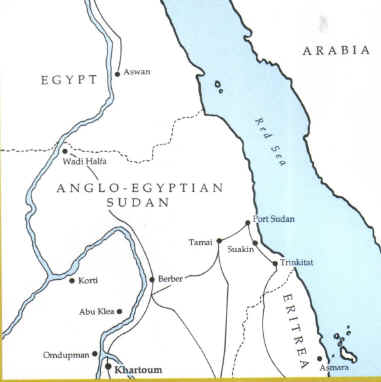
Despite these offers from the other Australian colonies that went unheeded by England, public excitement over the Sudan campaign led it to be called "the great adventure". The hastily formed force of 734 men of the New South Wales contingent for the Sudan were given a clamorous Sydney farewell on March 3, 1885.
By the time the Australian Sudan Contingent landed at Suakin in the Red Sea on 29 March 1885 the first Sudan War was nearly over.
The British Government was then completing plans to withdraw into Egypt, leaving the Mahdi to his conquests.
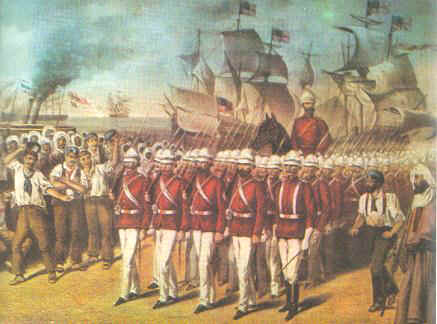
The arrival of the contingent in the Sudan.
The Australians joined two British brigades under General Graham at Suakin. This force operated against Oman Digna, the Mahdi's commander of the eastern tribes, with considerable success until it was withdrawn.
The troops, however, were in the Sudan for only seven weeks and saw little action, only being involved in two actions of note.

SYDNEY, NSW, 1885. Infantrymen of the NSW contingent to the Sudan, after their return to Australia. They are wearing khaki uniform issued for active service, and are equipped with Alexander-Henry rifles. Identified are: 426 Private J.A. Moutray (far left back row); sitting centre row, 436 Pte Louis Allen "Curley" Parkinson, next unidentified, Private John Edwards, Private R. Webb; 449 Sergeant J. Spence (reclining at front). J. Spence was Superintendent of Police and L A. Parkinson was Inspector of Police. (donor: Iris Parkinson)
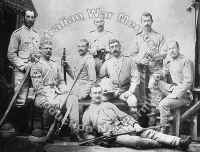
The six men who died did so on the return voyage to Australia. But the affair set a precedent for Australia's involvement with Britain in future overseas wars, giving Australian troops a taste of Africa. It was the first of four wars that the Australians would be involved in, where fighting on the African continent was involved.
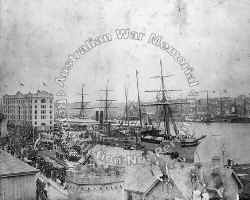
The Orient Line wharf, Circular Quay, Sydney, 1885-03. From Fort Macquarie, a view of the New South Wales contingent to the Sudan war about to be addressed by the Governor. In the foreground, the ship Australasian is numbered 2 NSW and behind it is the Iberia, 1 NSW. Other ships, sailing and paddle steamers, are visible in background. (original in Mitchell library)
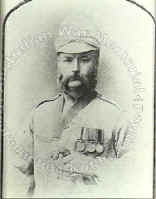
Warrant Officer Michael Tuite, Regimental Sergeant-Major of the NSW infantry contingent to the Sudan, 1885. Prior to his service in the Sudan, Tuite had served in the New Zealand wars and Afghanistan. On the contingent's return to Sydney, Tuite was presented with a silver tea and coffee service by the mayor of Sydney because he "had been the most efficient man in the service." part of this silver set is displayed in the war memorial
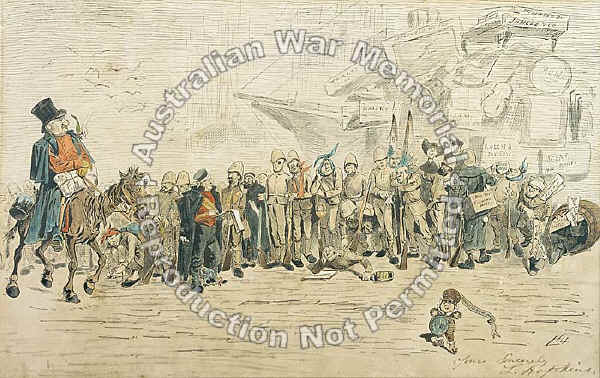
When they returned the men of the Soudan Contingent were ridiculed, by some sections of the media and some cartoonists, as having done nothing in a war that was basically over before they arrive. A cartoon parodying a painting, topical at the time, by Elizabeth Thompson (later Lady Butler) 'Calling the roll after an engagement, Crimea, (The Roll Call)' 1874, the cartoon depicts the Acting Premier Mr. Dalley riding a decrepit horse with a bag of medals to distribute, the Governor Lord Loftus is depicted as the Sergeant taking the roll call and the chook between his feet alludes to reports that he sold eggs laid at Government House, the chaplains stand near the back in front of a shipload of the gifts donated by merchants in February, the cartoon comments on the short time the contingent was away, the Jingoistic expectations of the daily papers, and the fact that the Contingent came back '...uninjured, and without having wrought injury upon anything more formidable than tinned beef' compared with the 'real' fighting and suffering experienced by the Grenadier Guards in the Crimea as shown in The Roll Call.
|
|
  
|
|
|
|